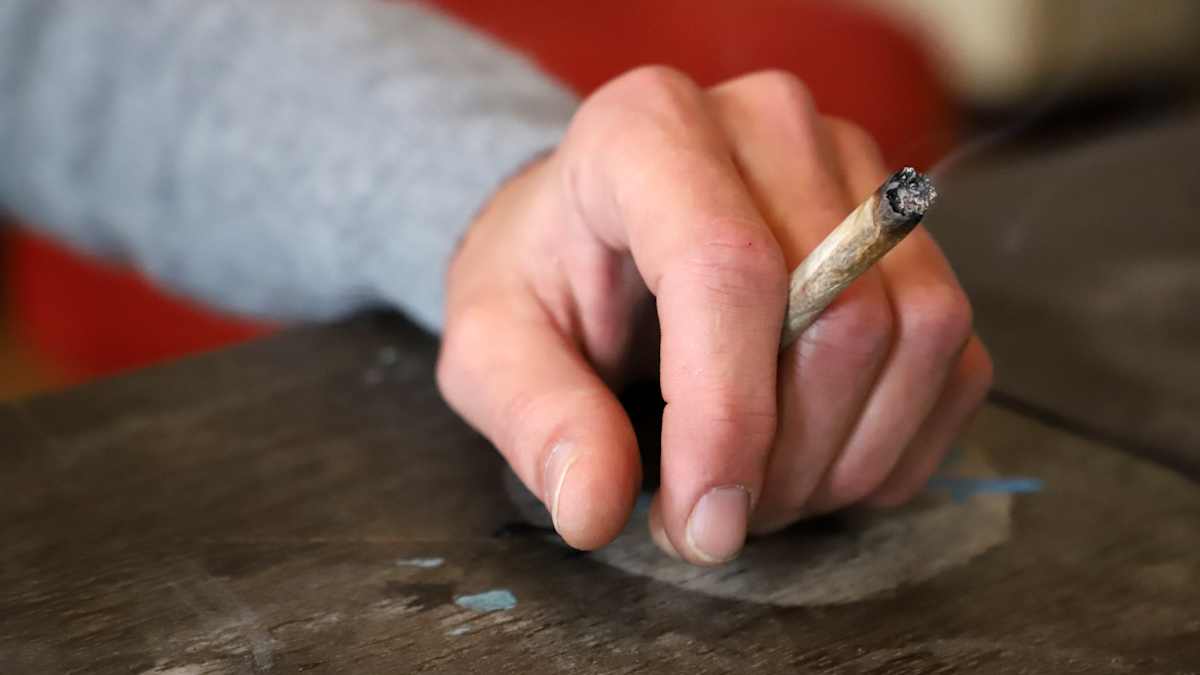This article originally appeared at https://yle.fi/a/74-20027123
For the first time in the survey's 30-year history, more people said they think that using cannabis regularly is not as risky as weekly binge drinking.

The survey also found 29 percent of respondents saying they would be prepared to decriminalise all drug use, which is nine percentage points more than said the same in 2018. Image: Johnny Sjöblom / Yle
Yle News
14.4 11:57
Negative attitudes towards recreational drugs appear to be in decline, according to a survey by the Institute for Health and Welfare (THL).
The survey, which was conducted last autumn, found an increasing number of people admitting to having experimented with, or used, some type of illicit drug.
Nearly 30 percent of adults in Finland admitted to having tried illicit drugs at some point in their lives, most commonly cannabis.
The proportion of people who said they've tried cannabis increased fivefold over the course of three decades — from six percent in 1992 to 29 percent in 2022, according to the THL.
Increasingly people have also tried other drugs, but at a considerably lower rate than cannabis.
The survey found that seven percent of respondents said they had tried amphetamine sometime in their lives, six percent had tried ecstasy, and five percent had tested cocaine.
Meanwhile, the use of doping substances has remained unchanged at around one percent of the population, the THL said.
The fact that increasing numbers of people aged 15 to 69 have experimented with a drug at some point is not surprising in itself, according to THL specialist researcher Karoliina Karjalainen, as the older age group respondents in the earlier drug use survey have aged out of the current poll.
"Over time, older age groups with less drug experiences will not be included in the survey sample," Karjalainen explained in a press release issued on Friday.
Therefore, an increasing proportion of the survey's age range are people who were young in the 1990s and afterwards — a period when drugs became more common in Finland.
"We know from previous research that a significant proportion of age groups born in the 1980s and 1990s have tried drugs," Karjalainen said, adding that the increase in drug use was anticipated.
Attitudes towards cannabis easing
In particular, perceptions about the riskiness of using cannabis have eased. Around 57 percent of respondents said they thought trying cannabis once or twice only carries minor health or other risks. Meanwhile, 20 percent of the survey participants said they felt same about the regular use of cannabis.
For the first time in the history of the drug attitude survey, more people said they think the risk of regular cannabis use was less than binge drinking on a weekly basis.
The survey also found 29 percent of respondents saying they would be prepared to decriminalise all drug use, which is nine percentage points more than said the same in 2018.
The majority, 53 percent, said the use of cannabis should not be a crime.
"Opinions about the criminality surrounding drug use are clearly changing," Pekka Hakkarainen, THL research professor, said.
He added that, like in other countries, people in Finland increasingly think that drug use issues should be addressed by social and healthcare providers.
Like in a number of countries around the EU and US, for example, negative attitudes in Finland about cannabis appear to be on the decline.
The survey also found that 24 percent of respondents thought that cannabis should be legally available for any use, while 56 percent were in favour of the medicinal use of cannabis. In 2018's survey, those proportions were 18 and 54 percent, respectively.
There was also an increase in the proportion of people who supported the idea of offering addicts monitored drug use facilities as a way to prevent fatal overdoses. Last autumn's survey found 65 percent of respondents in favour of drug use rooms, while in 2018 the proportion was 50 percent.
THL has regularly conducted a drug survey by mail around every four years since 1992. This time, 3,857 people between the ages of 15-69 took part.